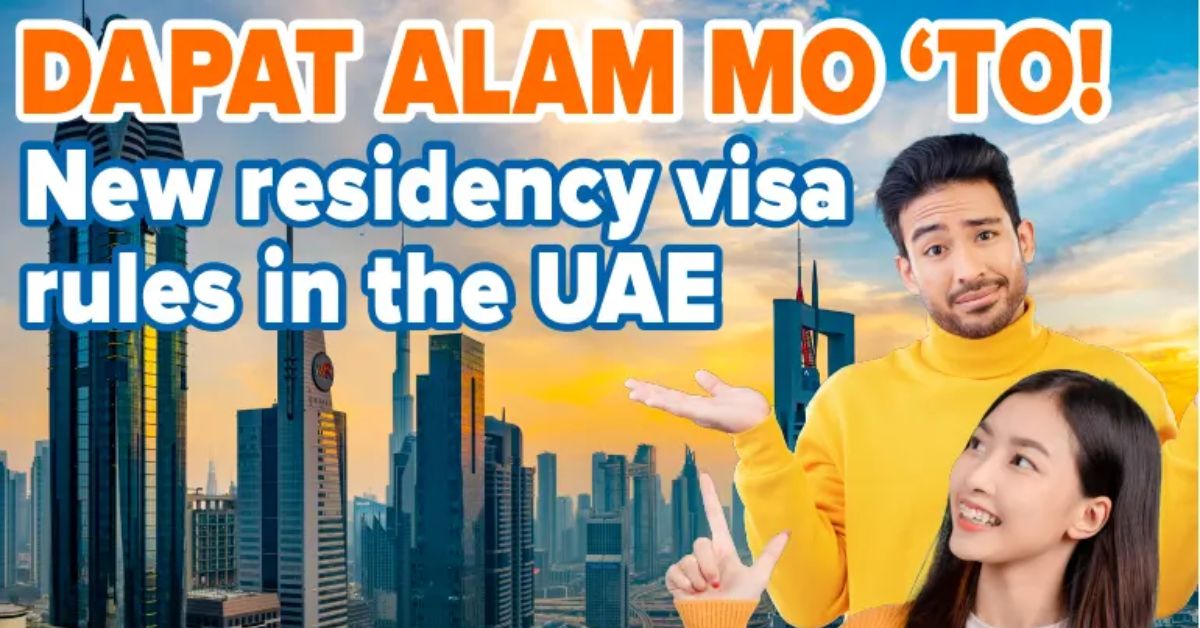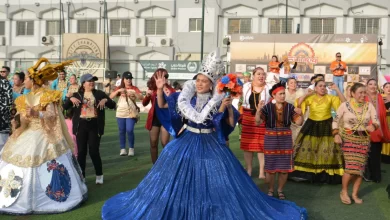For expatriates residing in the UAE, residency visas are a pivotal part of their lives in the country as they provide legal status and security for them. With foreign workers constituting a remarkable portion of the UAE’s population, these visas are a great help in facilitating access not only to employment but to education and healthcare as well. This way, expatriates are able to fully participate in the UAE’s vibrant economy.
In addition, residency visas significantly allow expatriates to build lasting connections and add positively to the country’s cultural diversity. Through the UAE government’s clear and supportive residency regulations, global talent is attracted, and expatriate families have a shot at a better life.
The latest updates to the UAE’s residency visa laws are thus important for Filipino expatriates to be aware of, as these may assist them in navigating any residency challenges they encounter.
Kaya na ni nanay
A major change to the UAE’s visa rules reflects the importance the country places on families by creating a more flexible and family-friendly legal environment. And it is one that empowers mothers.
Just recently, the Federal Authority for Identity, Citizenship, Customs & Port Security (ICP-UAE) has announced that mothers are now allowed to sponsor their children, a welcome relief for families whose head of the household is currently facing residency violations.
Provided that the mother is employed and holds a valid residency permit in the UAE, her children’s residency sponsorship can now be transferred to her.
This visa rule, effective immediately, directly affects those families who have the mother as the primary income provider. It does not just secure the overall well-being of the children but also enables expatriate families to be together as they thrive in the country.
However, according to the ICP-UAE, exit permits must be obtained should the father decide to leave the UAE with his family. This ensures that the family can exit the UAE without incurring any fines during the amnesty period.
Golden opportunity
Also recently unveiled – an initiative that empowers individuals considered to be a child’s second parent – is the eligibility of private school teachers in Dubai for a Golden Visa.
Announced by the Knowledge and Human Development Authority (KHDA), in line with the directives by His Highness Sheikh Hamdan bin Mohammed bin Rashid Al Maktoum, this type of Golden Visa recognizes teachers who have demonstrated exceptional performance and invaluable contributions to the emirate’s education sector.
Those eligible for this long-term residency are school principals and leaders, early childhood center (ECC) managers, academic heads of higher education institutions, teachers from schools and ECCs, and full-time faculty and senior administrative leaders at higher education institutions.
Teachers and faculty can qualify based on multiple criteria, such as advanced degrees, exemplary professional performance, support for key student groups, awards and recognitions, and active community participation.
All outstanding private school educators, including Filipinos, can apply for Golden Visas starting October 15. Applications will be reviewed by a dedicated committee from the KHDA and relevant authorities.

E-visa extension
Another update to the UAE’s visa regulations is the introduction of a 30-day extension for e-visas available to GCC residents, specifically those from Saudi Arabia, Bahrain, Kuwait, Oman, and Qatar who are planning to enter the UAE.
Announced by the UAE Digital Government (DGOV) on October 14, this new rule allows GCC residents to apply for an additional 30-day stay on top of their initial 30 days upon entry.
Companions of GCC citizens, on the other hand, can have a 60-day visa extension, in addition to being allowed a stay of 60 days from the date of entry.
Previously, GCC residents were not allowed to extend their visas within the UAE; they were required to exit the country and apply for a new entry visa if needed.
With e-visa applications, the GCC residency must be valid for no less than one year from the date of arrival, and the passport must have at least six months of validity remaining upon entry, the DGOV emphasized.
It also said that entry to the UAE will be denied if a GCC resident’s visa is expired or canceled as well as if there’s a change in their profession after the entry permit is issued. Further, for GCC expatriates and their companions traveling with GCC citizens, approval will not be granted if the sponsor is not accompanying them.
Application can be done online through the General Directorate of Residency and Foreigners Affairs-Dubai or through the ICP-UAE’s smart channels, added DGOV.
As the UAE continues to evolve its residency visa framework, these current initiatives reflect the country’s commitment to support expatriate families and further improve community integration.
These recent changes not only provide greater flexibility for parents but also empower educators who play a vital role in shaping the future of the country’s youth.
And for Filipinos in the UAE, these developments present valuable opportunities to secure their status and ensure a brighter tomorrow for themselves and their families.




